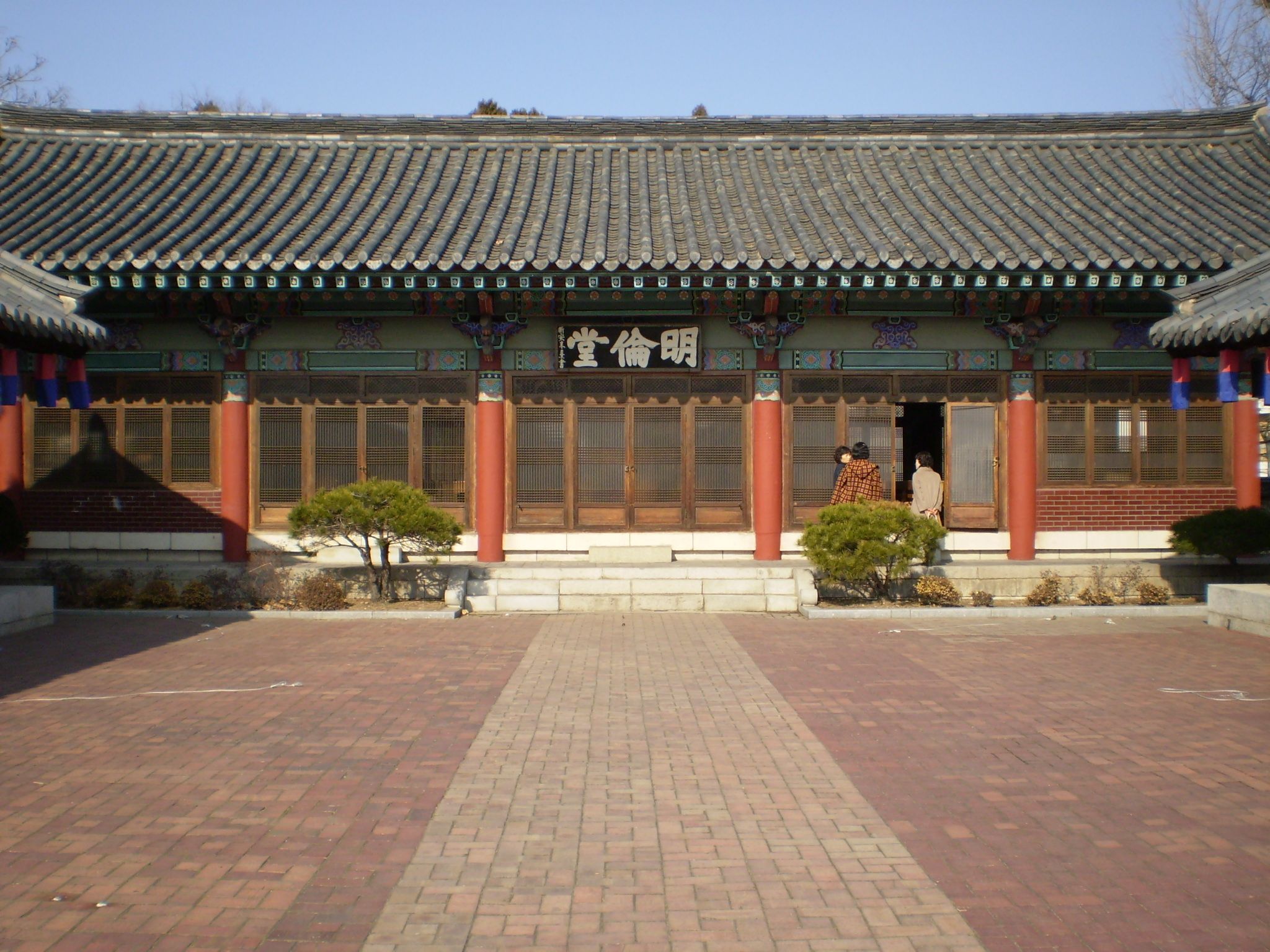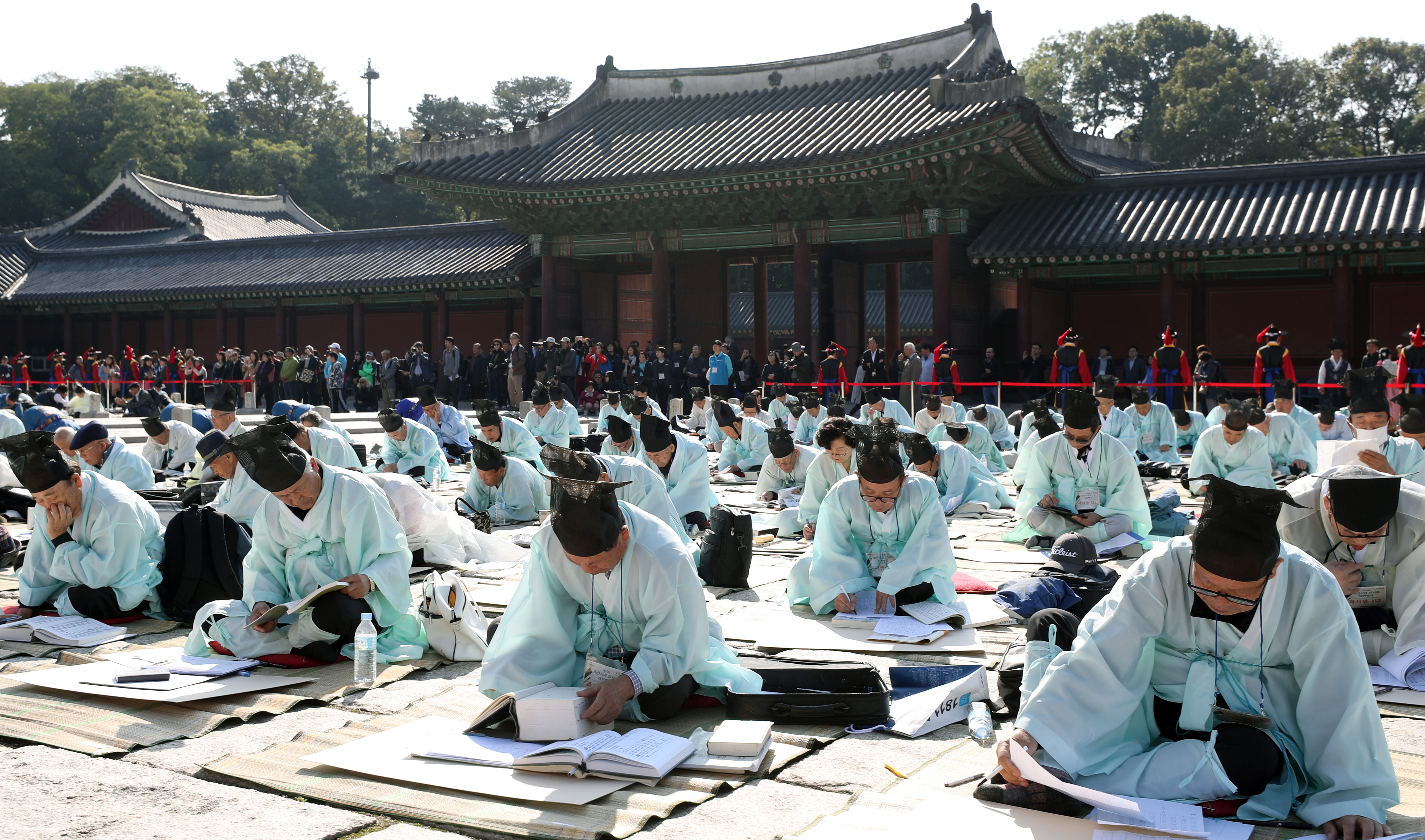|
Ch'oe Pu
Choe Bu (, 1454–1504) was a Korean official during the early Joseon Dynasty. He is most well known for the account of his shipwrecked travels in China from February to July 1488, during the Ming dynasty (1368–1644). He was eventually banished from the Joseon court in 1498 and executed in 1504 during two political purges. However, in 1506 he was exonerated and given posthumous honors by the Joseon court. Choe's diary accounts of his travels in China became widely printed during the 16th century in both Korea and Japan. Modern historians also refer to his written works, since his travel diary provides a unique outsider's perspective on Chinese culture in the 15th century. The attitudes and opinions expressed in his writing represent in part the standpoints and views of the 15th century Confucian Korean literati, who viewed Chinese culture as compatible with and similar to their own. His description of cities, people, customs, cuisines, and maritime commerce along China's G ... [...More Info...] [...Related Items...] OR: [Wikipedia] [Google] [Baidu] |
Choi (Korean Name)
Choi is a Korean family surname. As of the South Korean census of 2015, there were around 2.3 million people by this name in South Korea or roughly 4.7% of the population. In English-speaking countries, it is most often anglicized ''Choi'', and sometimes also ''Chey'', ''Choe'' or ''Chwe''. Ethnic Koreans in the former USSR prefer the form ''Tsoi'' (''Tsoy'') especially as a transcription of the Cyrillic Цой. Origin *According to Samguk Sagi, the Gyeongju clan originates from chief Sobeoldori (소벌도리, 蘇伐都利) of Goheochon (고허촌, 高墟村), one of six villages that united to found Silla; The Gyeongju clan traces their origin back to Choi Chiwon (857–10th century), a noted Korean scholar, philosopher, and poet of the late Unified Silla period (668–935). *One theory of origin suggests that Haeju clan's progenitor Choi Choong (최충, 崔沖, 984–1068) was given the surname 崔 during the reign of Goryeo king Mokjong. *The progenitor of the Chungju cl ... [...More Info...] [...Related Items...] OR: [Wikipedia] [Google] [Baidu] |
Prefecture
A prefecture (from the Latin ''Praefectura'') is an administrative jurisdiction traditionally governed by an appointed prefect. This can be a regional or local government subdivision in various countries, or a subdivision in certain international church structures, as well as in antiquity a Roman district. Literal prefectures Antiquity ''Prefecture'' originally refers to a self-governing body or area since the tetrarchy, when Emperor Diocletian divided the Roman Empire into four districts (each divided into dioceses), grouped under ''a Vicarius'' (a number of Roman provinces, listed under that article), although he maintained two pretorian prefectures as an administrative level above the also surviving dioceses (a few of which were split). Ecclesiastic As canon law is strongly inspired by Roman law, it is not surprising that the Catholic Church has several offices under a prefect. That term occurs also in otherwise styled offices, such as the head of a congregation or departmen ... [...More Info...] [...Related Items...] OR: [Wikipedia] [Google] [Baidu] |
History Of Korea
The Lower Paleolithic era in the Korean Peninsula and Manchuria began roughly half a million years ago. Christopher J. Norton, "The Current State of Korean Paleoanthropology", (2000), ''Journal of Human Evolution'', 38: 803–825. The earliest known Korean pottery dates to around 8000 BC, and the Neolithic period began after 6000 BC, followed by the Bronze Age by 2000 BC, Jong Chan Kim, Christopher J Bae, "Radiocarbon Dates Documenting The Neolithic-Bronze Age Transition in Korea" , (2010), ''Radiocarbon'', 52: 2, pp. 483–492. and the around 700 BC. Similarly, accordi ... [...More Info...] [...Related Items...] OR: [Wikipedia] [Google] [Baidu] |
Dongguk Tonggam
The Dongguk Tonggam (''Comprehensive Mirror of the eastern state'') is a chronicle of the early history of Korea compiled by Seo Geo-jeong (1420–1488) and other scholars in the 15th century. Originally commissioned by King Sejo in 1446, it was completed under the reign of Seongjong of Joseon, in 1485. The official Choe Bu was one of the scholars who helped compile and edit the work. The earlier works on which it may have been based have not survived. The ''Dongguk Tonggam'' is the earliest extant record to list the names of the rulers of Gojoseon after Dangun. Content ''Dongguk Tonggam'' uses an annal form. ''Dongguk Tonggam'' is organised into 382 passages, of which 178 were selected from existing documents. The rest was written by the authors. In particular, Choi Bu authored 118 of them. Dongguk Tonggam is a valuable source of historical information and descriptions from Tangun to the later years of the Joseon Dynasty. Feature In this book, the historical positions ... [...More Info...] [...Related Items...] OR: [Wikipedia] [Google] [Baidu] |
Gwageo
The ''gwageo'' or ''kwago'' were the national civil service examinations under the Goryeo and Joseon dynasties of Korea. Typically quite demanding, these tests measured candidates' ability of writing composition and knowledge of the Chinese classics. The form of writing varied from literature to proposals on management of the state. Technical subjects were also tested to appoint experts on medicine, interpretation, accounting, law etc. These were the primary route for most people to achieve positions in the bureaucracy. Based on the civil service examinations of imperial China, the ''gwageo'' first arose in Unified Silla, gained importance in Goryeo, and were the centerpiece of most education in the Joseon dynasty. The tutelage provided at the hyanggyo, seowon, and Sungkyunkwan was aimed primarily at preparing students for the gwageo and their subsequent career in government service. Under Joseon law, high office was closed to those who were not children of officials of the s ... [...More Info...] [...Related Items...] OR: [Wikipedia] [Google] [Baidu] |
Civil Service
The civil service is a collective term for a sector of government composed mainly of career civil servants hired on professional merit rather than appointed or elected, whose institutional tenure typically survives transitions of political leadership. A civil servant, also known as a public servant, is a person employed in the public sector by a government department or agency for public sector undertakings. Civil servants work for central and state governments, and answer to the government, not a political party. The extent of civil servants of a state as part of the "civil service" varies from country to country. In the United Kingdom (UK), for instance, only Crown (national government) employees are referred to as "civil servants" whereas employees of local authorities (counties, cities and similar administrations) are generally referred to as "local government civil service officers", who are considered public servants but not civil servants. Thus, in the UK, a civil servant is ... [...More Info...] [...Related Items...] OR: [Wikipedia] [Google] [Baidu] |
Neo-Confucianism
Neo-Confucianism (, often shortened to ''lǐxué'' 理學, literally "School of Principle") is a moral, ethical, and metaphysical Chinese philosophy Chinese philosophy originates in the Spring and Autumn period () and Warring States period (), during a period known as the " Hundred Schools of Thought", which was characterized by significant intellectual and cultural develop ... influenced by Confucianism, and originated with Han Yu (768–824) and Li Ao (philosopher), Li Ao (772–841) in the Tang Dynasty, and became prominent during the Song dynasty, Song and Ming dynasty, Ming dynasties under the formulations of Zhu Xi (1130–1200). After the Mongol conquest of China in the thirteenth century, Chinese scholars and officials restored and preserved neo-Confucianism as a way to safeguard the cultural heritage of China. Neo-Confucianism could have been an attempt to create a more rationalist and secular form of Confucianism by rejecting superstitious and m ... [...More Info...] [...Related Items...] OR: [Wikipedia] [Google] [Baidu] |
Zhu Xi
Zhu Xi (; ; October 18, 1130 – April 23, 1200), formerly romanized Chu Hsi, was a Chinese calligrapher, historian, philosopher, poet, and politician during the Song dynasty. Zhu was influential in the development of Neo-Confucianism. He contributed greatly to Chinese philosophy and fundamentally reshaped the Chinese worldview. His works include his editing of and commentaries to the Four Books (which later formed the curriculum of the civil service exam in Imperial China from 1313 to 1905), his writings on the process of the "investigation of things" (), and his development of meditation as a method for self-cultivation. He was a scholar with a wide learning in the classics, commentaries, histories and other writings of his predecessors. In his lifetime he was able to serve multiple times as a government official, although he avoided public office for most of his adult life. He also wrote, compiled and edited almost a hundred books and corresponded with dozens of other schol ... [...More Info...] [...Related Items...] OR: [Wikipedia] [Google] [Baidu] |
Four Books
The Four Books and Five Classics () are the authoritative books of Confucianism, written in China before 300 BCE. The Four Books and the Five Classics are the most important classics of Chinese Confucianism. Four Books The Four Books () are Chinese classic texts illustrating the core value and belief systems in Confucianism. They were selected by intellectual Zhu Xi in the Song dynasty to serve as general introduction to Confucian thought, and they were, in the Ming and Qing dynasties, made the core of the official curriculum for the civil service examinations. More information of them are as follows: List ; ''Great Learning'' : Originally one chapter in the ''Book of Rites''. It consists of a short main text attributed to Confucius and nine commentary chapters by Zengzi, one of the disciples of Confucius. Its importance is illustrated by Zengzi's foreword that this is the gateway of learning. It is significant because it expresses many themes of Chinese philosophy and politi ... [...More Info...] [...Related Items...] OR: [Wikipedia] [Google] [Baidu] |
Five Classics
The Four Books and Five Classics () are the authoritative books of Confucianism, written in China before 300 BCE. The Four Books and the Five Classics are the most important classics of Chinese Confucianism. Four Books The Four Books () are Chinese classic texts illustrating the core value and belief systems in Confucianism. They were selected by intellectual Zhu Xi in the Song dynasty to serve as general introduction to Confucian thought, and they were, in the Ming and Qing dynasties, made the core of the official curriculum for the civil service examinations. More information of them are as follows: List ; ''Great Learning'' : Originally one chapter in the ''Book of Rites''. It consists of a short main text attributed to Confucius and nine commentary chapters by Zengzi, one of the disciples of Confucius. Its importance is illustrated by Zengzi's foreword that this is the gateway of learning. It is significant because it expresses many themes of Chinese philosophy and politi ... [...More Info...] [...Related Items...] OR: [Wikipedia] [Google] [Baidu] |
Seonggyungwan
Sungkyunkwan was the foremost educational institution in Korea during the late Goryeo and Joseon Dynasties. Today, it sits in its original location, at the south end of the Humanities and Social Sciences Campus of Sungkyunkwan University in Seoul, South Korea. Twice a year, in May and September, the ceremonial rite Seokjeon Daeje is performed in the Munmyo Shrine, to honor Confucius and the Confucian sages of China and Korea. Meaning of Sungkyunkwan *Sung ( RR: Seong) (성, 成) – accomplish, achieve. To become capable, successful or to win. “To perfect or develop human nature”. *Kyun ( RR: Gyun) (균, 均) – balance, to be. Strengthen culture according to social standards or norms. “To build a good society”. *Kwan ( RR: Gwan) (관, 館) – institute, academy, university. Predecessors of Sungkyunkwan *Taehak (태학, 太學, Great School) – founded in 372 during the reign of King Sosurim of Goguryeo * Gukhak (국학, 國學, National School) – founded in 6 ... [...More Info...] [...Related Items...] OR: [Wikipedia] [Google] [Baidu] |




